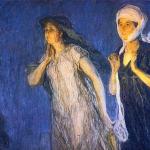 That’s by Sam Harris and it’s on the “New York Times Bestseller List” which I think is really interesting and cool – lots of people buying a book on waking up is wonderful.
That’s by Sam Harris and it’s on the “New York Times Bestseller List” which I think is really interesting and cool – lots of people buying a book on waking up is wonderful.
If only I’d gotten my act together here and alerted you earlier, you might have seen Sam in person in LA, New York, or San Francisco in September for $219 (about as much as a friend is spending to see Bob Dylan in concert next month). Sam’s “…lecture and Q&A will be followed by a catered cocktail reception.”
You don’t get that with Bob.
All the events were apparently sold out.
Sam’s mostly known for giving the Christians, Jews, and Muslims hell and advocating atheism. Indeed, Ben Affleck recently called Sam and Bill Maher Islamophobes and they all had an argument about that last week – Click.
In Waking Up, Sam’s argument isn’t about Islam Fundamentalists like ISIS but about how different religious doctrine can either encourage waking up or discourage it. He doesn’t discriminate against Islam in the book (nor do I think his argument against Islamic extremism is discriminatory) but chides it equally with Christianity and Judaism as religions that discourage waking up.
The main thrust of the early part of the book, though, is to make a case for nonself based on current research about the nature of consciousness. One of my favorite parts is about the research with people who’ve had their corpus callosums cut to prevent seizures. Turns out that they likely have two different consciousnesses and senses of self – in the same body.
This section is a great read as he shows how science supports nonself perspective and yet how it must be personally verified to make a difference in one’s life. He also acknowledges this this is not so easy to do. Here’s Sam:
“Look closely enough at your own mind in the present moment, and you will discover that the self is an illusion. The problem with a claim of this kind, however, is that one can’t borrow another person’s contemplative tools to test it. To see how the feeling of “I” is a product of thought—indeed, to even appreciate how distracted by thought you tend to be in the first place—you have to build your own contemplative tools. Unfortunately, this leads many people to dismiss the project out of hand: They look inside, notice nothing of interest, and conclude that introspection is a dead end. But just imagine where astronomy would be if, centuries after Galileo, a person were still obliged to build his own telescope before he could even judge whether astronomy was a legitimate field of inquiry. It wouldn’t make the sky any less worthy of investigation, but astronomy’s development as a science would become immensely more difficult.”
Nice point, don’t you think?
Sam likens the realization of nonself with the optic blind spot:
“The direct perception of the optic blind spot again provides a useful analogy: Imagine that perceiving the blind spot will completely transform a person’s life. Next, imagine that whole religions such as Judaism, Christianity, and Islam are predicated on the denial of the blind spot’s existence—let us say that their central doctrines assert the perfect uniformity of the visual field. Perhaps other traditions acknowledge the blind spot but in purely poetical terms, without giving any clear indication of how to recognize it. A few lineages may actually teach techniques whereby one can see the blind spot for oneself, but only gradually, after months and years of effort, and even then one’s glimpses of it will seem more a matter of luck than anything else. In a more esoteric tradition still, a “blind spot master” gives the “pointing-out instruction” but without much precision: Perhaps he tells you to close one eye, for reasons that are never made explicit, and then says that the spot you seek is right on the surface of your vision. No doubt some people will succeed in discovering the blind spot under these conditions, but the teacher could certainly be clearer than this.”
Some Dzogchen teachers, according to Sam, are world class blind spot masters, especially the late Tulku Urgyen. “Dzogchen,” he writes, “is not vague or paradoxical. It is not like Zen, wherein a person can spend years being uncertain whether he is meditating correctly.”
Hey, now! Zen isn’t essentially vague. Paradoxical, okay, yes. We do have some world class paradoxes. For example, Zen is something you can’t do alone or get better at. Want to try it?
Still, I think Sam calling Zen vague is a nice healthy tweak. Zen can sometimes be presented in a really vague, meandering way and yet, it really doesn’t need to be. I’ve seen how giving people precise directions for practice can make a big positive difference. So I share this criticism of Zen and am determined do my best to make a difference on this count.
And speaking of paradox, try spirituality without religion – the faith of 12% of Americans, according to Sam. My concern with that approach is simple – more “my way” and less letting go does not lead to well being or the ground of being. Granted, that’s just arm-chair quarterbacking. My path has been to find spirituality within religion and that’s worked out just fine. Well, with numerous bumps in the road as you might expect.
My main concern with the book, though, is about what Sam calls “waking up.”
“It is considered bad form” says Sam, “in most spiritual circles, especially among Buddhists, to make claims about one’s own realization . However, I think this taboo comes at a high price, because it allows people to remain confused about how to practice. So I will describe my experience plainly.”
Well, bravo! Good for him. Good for you, Sam. I think that takes guts. Here’s his story:
“Before meeting Tulku Urgyen, I had spent at least a year practicing vipassana on silent retreats. The experience of self-transcendence was not entirely unknown to me. I could remember moments when the distance between the observer and the observed had seemed to vanish, but I viewed these experiences as being dependent on conditions of extreme mental concentration. Consequently, I thought they were unavailable in more ordinary moments, outside intensive retreat. But after a few minutes, Tulku Urgyen simply handed me the ability to cut through the illusion of the self directly, even in ordinary states of consciousness. This instruction was, without question, the most important thing I have ever been explicitly taught by another human being. It has given me a way to escape the usual tides of psychological suffering—fear, anger, shame—in an instant. At my level of practice, this freedom lasts only a few moments. But these moments can be repeated, and they can grow in duration. Punctuating ordinary experience in this way makes all the difference. In fact, when I pay attention, it is impossible for me to feel like a self at all: The implied center of cognition and emotion simply falls away, and it is obvious that consciousness is never truly confined by what it knows. That which is aware of sadness is not sad. That which is aware of fear is not fearful. The moment I am lost in thought, however, I’m as confused as anyone else.”
Sam certainly echoes Dogen’s pithy summary of the path, at least in part: “To study the buddha way is to study the self. To study the self is to forget the self. To forget the self is to be actualized by myriad things. When actualized by myriad things, your body and mind as well as the bodies and minds of others drop away. No trace of enlightenment remains, and this no-trace continues endlessly.”
And there may be something else. Sam seems to be suggesting a consciousness that is separate from sense experience. “That which is aware of sadness is not sad.”
If Sam wandered into my dokusan room, I’d ask, “Who is sad?” “Who hears?” “Who sees?”
It isn’t clear that waking up for Sam is waking up, at least in the context of the Zen tradition. And because a waking up experience provides the basis for practicing enlightenment, this is an important point. Maybe it’s just a difference of school and waking up in Dzogchen is different – although a friend who has studied Dzogchen intensively for thirty-some years confirmed my suspicions about Sam’s presentation on this point.
Still, the first part of the book on consciousness and self is strong. I found the section on waking up intriguing. And that made up for the last chapter, “Gurus, Death, Drugs, and Other Puzzles,” where the book loses focus with some miscellaneous filler.











